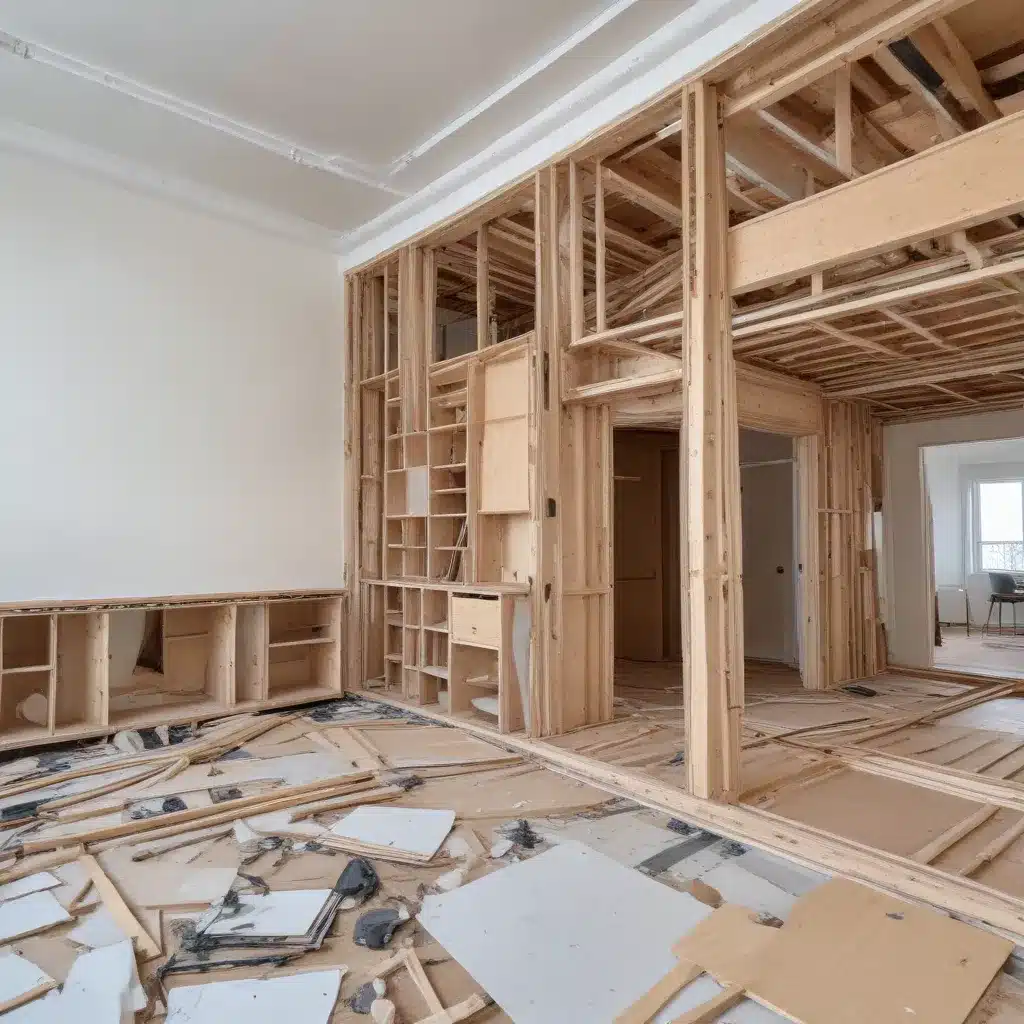
Generative AI: Empowering Renovations
The world of home renovations is on the cusp of a transformative shift, thanks to the groundbreaking advancements in generative AI. This revolutionary technology is poised to unlock a new era of design possibilities, streamlining the entire renovation process from concept to completion. As an experienced home improvement consultant, I’m excited to share how generative AI is redefining the way we approach renovations, from budget-friendly projects to eco-friendly solutions and family-friendly designs.
Harnessing Generative AI
Revolutionizing the Design Process
Gone are the days of tedious sketching and endless revisions. Generative AI has introduced a quantum leap in the way we conceptualize and visualize renovation projects. By leveraging these intelligent algorithms, homeowners and designers can now generate a myriad of design options in a matter of minutes, exploring various layouts, materials, and aesthetics with unprecedented speed and precision. Imagine being able to see your dream kitchen or bathroom come to life before your eyes, with the ability to make real-time adjustments to suit your preferences.
Exploring AI-Driven Ideation
The true power of generative AI lies in its ability to foster creativity and unlock new design possibilities. Rather than being limited by personal experience or historical references, these AI models can draw from a vast pool of data to generate entirely novel concepts that push the boundaries of traditional renovation design. Whether you’re seeking to transform a small space or revamp an entire home, generative AI can serve as a virtual collaborator, suggesting innovative solutions and inspiring you to think outside the box.
The Potential of Generative AI
Enhancing Creativity
One of the most remarkable aspects of generative AI is its capacity to augment human creativity. By providing a virtually limitless canvas for exploration, these tools empower designers and homeowners to experiment with different styles, materials, and spatial configurations without the constraints of physical prototyping or the fear of costly mistakes. This iterative design process allows for rapid iteration and refinement, ultimately leading to more personalized and visually stunning renovation outcomes.
Streamlining Conceptualization
In the past, the early stages of a renovation project could be plagued by indecision and uncertainty, as homeowners struggled to visualize the final result. Generative AI changes the game by generating high-fidelity 3D renderings, photorealistic images, and even animated walkthroughs of proposed designs. This level of visual clarity not only helps homeowners make more informed decisions but also facilitates seamless collaboration between designers, contractors, and other stakeholders.
Unlocking Design Possibilities
Customizing Spaces
One of the most exciting applications of generative AI in renovations is the ability to create truly personalized spaces. By inputting specific requirements, such as room dimensions, lifestyle preferences, and aesthetic sensibilities, these AI models can generate customized floor plans and adaptive layouts that cater to the unique needs of each homeowner. Gone are the days of one-size-fits-all solutions; generative AI empowers us to design spaces that reflect the distinct character and aspirations of the individuals who will inhabit them.
Iterative Design Iterations
Renovations are inherently an iterative process, with multiple rounds of refinement and adjustment. Generative AI streamlines this process by enabling rapid prototyping and optimizing design aesthetics. Homeowners can explore a vast array of design options, from materials and finishes to lighting and furniture placement, and instantly visualize the impact of their choices. This iterative approach allows for a more collaborative and informed decision-making process, ultimately leading to renovation projects that exceed expectations.
Integrating Generative AI
Bridging the Gap
As generative AI continues to evolve, we’re witnessing a growing convergence between technological capabilities and human creativity. By seamlessly integrating these AI-powered tools into the renovation workflow, we can bridge the gap between conceptualization and realization, fostering a more collaborative design process that brings together homeowners, designers, and contractors. This synergy enables a shared understanding of the project’s vision, facilitating smoother communication, faster decision-making, and more efficient project execution.
Embracing AI-Powered Tools
The rise of generative design applications and intelligent rendering engines has revolutionized the way we approach renovations. These AI-driven tools not only streamline the design process but also provide valuable insights and optimization recommendations. From generating layouts and visualizing materials to predicting construction costs and scheduling timelines, generative AI can be a game-changer for homeowners and renovation professionals alike.
The Future of Renovations
AI-Driven Innovations
As generative AI continues to evolve, we can expect to see even more transformative applications in the realm of home renovations. Predictive maintenance, for instance, could leverage AI-powered analytics to proactively identify potential issues within a home’s infrastructure, allowing homeowners to address problems before they escalate. Furthermore, automated construction planning powered by generative AI could revolutionize the scheduling and resource allocation of renovation projects, leading to increased efficiency and cost savings.
Ethical Considerations
While the potential of generative AI in renovations is undeniable, it’s crucial to address the ethical implications that come with this technology. Algorithmic bias, for example, can inadvertently perpetuate stereotypes or limit design options based on demographic factors. Additionally, the use of generative AI raises concerns around privacy and data security, as homeowners may need to share sensitive information to leverage these tools. As the industry embraces this transformative technology, it’s imperative that we prioritize responsible development and deployment, ensuring that generative AI empowers homeowners and designers, rather than undermining their autonomy.
By harnessing the power of generative AI, we are ushering in a new era of home renovations – one that is marked by increased creativity, personalization, and efficiency. As an experienced home improvement consultant, I’m excited to witness the profound impact this technology will have on the way we design, plan, and execute renovation projects. The future of renovations is here, and it’s powered by the boundless potential of generative AI. To explore the latest advancements and unlock the full potential of your next renovation, I encourage you to visit Reluctant Renovator – your trusted resource for design inspiration, project management tips, and innovative solutions.



